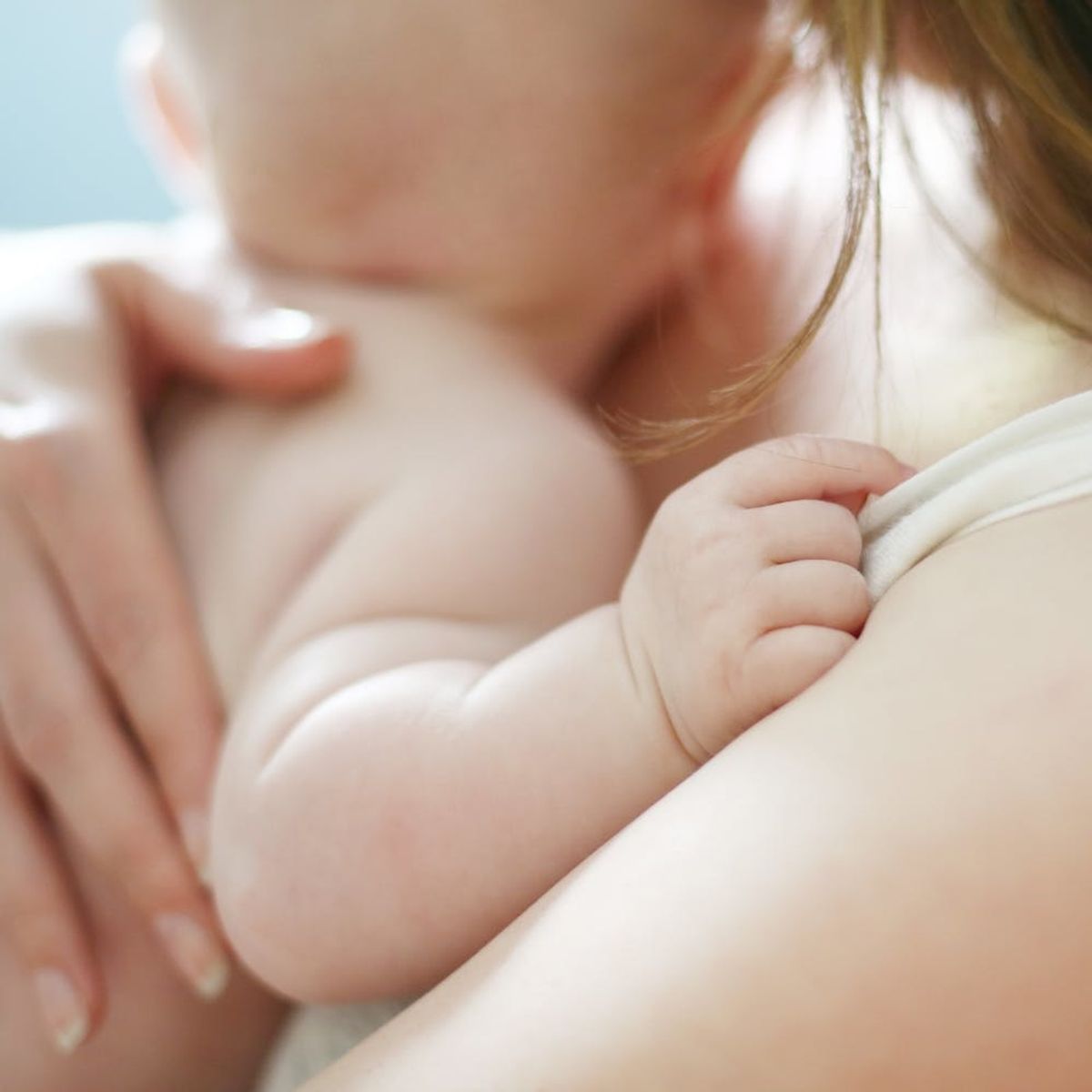There’s more to navigating the post-baby experience than you might expect.
We Talk About Postpartum Depression, But Post-Weaning Depression Is Also a Thing


An honest look at the ways women are taking care of body and mind.
*
As someone who’s struggled with anxiety for most of my life, I prepared myself for a rocky postpartum — my mental health had plummeted during my second pregnancy, so I figured I’d also struggle during the vulnerable first few months after the baby was born. But when my baby came in February of last year, by some hormonal miracle, I felt more emotionally balanced than I had in months. This is too good to be true, I thought, waiting for the shoe to drop. I spent the first several months of my son’s life wondering when I’d make the inevitable descent into postpartum depression, which experts say can take as long as a year after giving birth to appear.
I didn’t experience depression symptoms for 15 months, when I began to wean my son.
Postpartum depression, which OB-GYNs now incorporate within a broader spectrum of maternal mental health issues called perinatal mood disorders, affects one in seven women, half of whom begin experiencing symptoms like anxiety, guilt, extreme sadness, or suicidal thoughts during pregnancy. While there’s no single, root cause for PPD, experts say physiological changes — after birth, women experience a dramatic drop in hormones — combined with emotional triggers like sleep deprivation and the new responsibility of motherhood play a role in PPD’s onset.
But for some women, depression delays even longer, surfacing during or after weaning a baby.

While there’s very little research on the subject of post-weaning depression, experts hypothesize that a mom’s mood changes after ceasing breastfeeding stem from a decline of the hormones oxytocin and prolactin. Both hormones bring with them a feeling of calm and relaxation, and when they’re no longer present, it stands to reason that some moms might experience an effect on their mood. Lactation consultants recommend weaning slowly to prevent a sudden drop in these hormones, which can give the body a chance to adjust and compensate for the physiological changes.
In my case, it didn’t. Depression came on suddenly and strong, even though I cut out just one feeding every week. I spent full days lying on the couch, debilitated by a weighty kind of sadness I had never felt before. My complete lack of motivation was starting to scare me: I didn’t want to do anything but sleep, I hardly ate or engaged with my kids, and I lost all motivation to work. Thankfully, my depression, though it was intense, was also short-lived. Most of my symptoms tapered off after about five weeks as my son and I adjusted to the change and seemed to balance completely after my first two postpartum menstrual cycles.
Physiological changes like hormonal fluctuations are certainly a culprit in the profound mood changes I and many women experience after weaning, but some experts believe that psychological changes can also play a significant role.
“Weaning is one of the first profound separations that happens between a mother and her baby,” says Alexandra Sacks, a reproductive psychiatrist and co-author of the forthcoming book What No One Tells You: A Guide to your Emotions from Pregnancy to Motherhood, in an interview with Brit + Co. “I often see women feel a sadness in the end of a special time because it signals that the baby is growing up, that infancy is over.”
Dr. Sacks also believes that for women who enjoy breastfeeding, weaning can feel like an identity shift, bringing up questions about the evolution of the mom-baby relationship. “With nursing, moms are the only ones who can provide food for the baby. If moms aren’t feeling confident in other interactions with the baby, breastfeeding can feel very meaningful and validating in terms of identifying as a ‘good mom,'” she says. “Weaning can trigger questions like ‘what’s best?’ and ‘how can I take care of my child?'”

Some moms, Dr. Sacks says, need to stop breastfeeding before their babies want to, which can result in feelings of guilt or sadness for saying “no” to the baby, compounding the other emotionally complicated changes that come with weaning. But on the other end of the spectrum, other moms may experience a sense of relief when they’re done breastfeeding, which Dr. Sacks says she sees just as frequently in her practice as post-weaning depression, whether breastfeeding wasn’t going well or a mom simply didn’t enjoy the experience.
“Response to weaning really varies really person to person based on your hormonal sensitivity and what breastfeeding meant to you in terms of your relationship with your child, both physically and psychologically. Everyone’s physiology and psychology are different in terms of the mother-baby interaction,” Dr. Sacks says.
For me, breastfeeding was a surprisingly enjoyable journey compared to my more challenging experience with my first son (no shade, Ollie, if you ever read this). Whether my post-weaning depression stemmed from hormonal shifts, changes in routine with my son, or a mysterious combination of both, I know one thing: So much of motherhood is about calibrating to our kids’ evolving needs and finding a new normal. While watching my baby grow up can sometimes feel like a punch to the gut, there’s also a profound sense of pride in watching him become more and more independent as he learns and grows. And I’ll admit, the full nights of sleep I’m finally getting don’t hurt one bit.
Have you had post-weaning depression? Tell us about your experience @BritandCo!
(Photos via Getty)

















